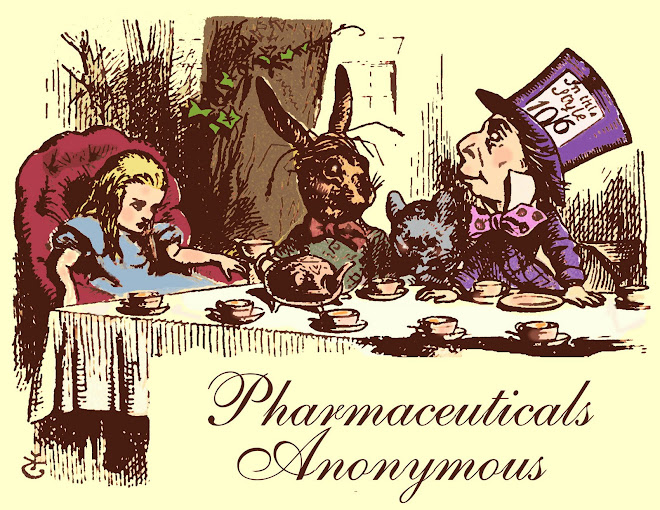 Been Damaged By Pharma? Call Rules Committee Members Now!
Been Damaged By Pharma? Call Rules Committee Members Now!ALLIANCE FOR HUMAN RESEARCH PROTECTION (AHRP)
Promoting Openness, Full Disclosure, and Accountability
http://www.ahrp.org and http://ahrp.blogspot.com
Call Members Of The Rules Committee Now!
FYI
Below, the National Whistleblower's Center is asking advocates to call members of the House Rules Committee asking them to vote for a National Whistleblower's Protection Law. [text below]
Absent from the legislative language developed by the Whistleblower's Center is inclusion of protection for citizens who are victimized by hazardous medical products. Hundreds of thousands of citizens suffer serious disabling harm--many are killed--by toxic prescription drugs and defective medical devices.
Whistleblower legislation cannot be blind to the suffering caused by corrupt practices by corporations and /or government officials.
Contact: Vera Hassner Sharav
212-595-8974
veracare@ahrp.org
From: "National Whistleblowers Center"
mw@whistleblowers.org
Date: January 27, 2009 1:12:30 PM EST
To: "Stephen Sheller" sasheller@sheller.com
Subject: Call Members Of The Rules Committee Now!
Reply-To: "National Whistleblowers Center" mw@whistleblowers.org
Dear Active Member,
Contact the Congressional Rules Committee to urge them to vote for federal whistleblower protection in the stimulus bill. It is critical that you call Rules Committee members now!
Below is a list of the Rules Committee members and their office phone numbers. Please call them now and tell them to vote for oversight and accountability today!
Louise M. Slaughter (D-NY) - (202) 225-3615
James P. Mc Govern (D-MA) - (202) 225-6101
Alcee L. Hastings (D-FL) (202) 225-1313
Doris O. Masui (D-CA) (202) 225-7163
Dennis Cardoza (D-CA) (202) 225-6131
Michael Arcuri (D-NY) (202) 225-1891
Ed Perlmutter (D-CO) (202) 225-2645
Chellie Pingree (D-ME) (202) 225-6116
Jared Polis (D-CO) (202) 225-2161
David Dreier (D-CA) (202) 225-2305
Lincoln Diaz-Balart (R-FL) (202) 225-4211
Pete Sessions (R-TX) (202) 225-2231
Virginia Foxx (R-NC) (202) 225-2071
Thank you!
Stephen M. Kohn
President
National Whistleblowers Center
PETITION FOR A NATIONAL WHISTLEBLOWER PROTECTION ACT
WHEREAS, the adequate protection of employee whistleblowers is essential to ensure that the American people know about the misconduct of their elected officials;
WHEREAS, employee whistleblowers have saved the taxpayers billions of dollars;
WHEREAS reports made by employee whistleblowers exposed numerous failures in the "war on terror";
WHEREAS, employee whistleblowers serve the public interest by disclosing violations of law, fraud against investors and threats to the environment and public health and safety;
WHEREAS, there are currently no federal protections for employees who expose drug safety violations, election fraud, medical misconduct, food safety violations, pesticide abuses, consumer fraud and violations of numerous other laws designed to protect the American public;
WHEREAS, Congress has not enacted a comprehensive national whistleblower protection law akin to the national laws enacted to prohibit discrimination on the basis of sex, race, age, religion or disability;
BE IT RESOLVED, that the undersigned petitioners hereby call upon the Congress of the United States to pass a National Whistleblower Protection Act designed to prevent retaliation against employees who blow the whistle on violations of law and threats to the public health and safety;
BE IT FURTHER RESOLVED, that any National Whistleblower Protection Act provide whistleblowers with a level of protection that is at least equal to the protections currently afforded all employees under Title VII of the Civil Rights Act of 1964 (the law which prohibits discrimination on the basis of race, sex, religion, or national origin), and the false claims act.
Related Links:
* FDA Protection Failure - Drug Safety Crisis
Vera Hassner Sharav, AHRP/Gardiner Harris, New York Times















